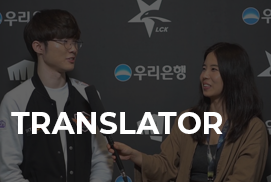

The esports industry is a global phenomenon that has expanded its reach across the world. With fans and players from different countries, languages can often be a barrier in communication. This is where a translator comes in, and their role in the esports industry is crucial. In this article, we will discuss the career as a translator in the esports industry, and how the role can tie into esports.
In esports, there are several occasions where a translator is required. These occasions include interviews with foreign players, post-game press conferences, and communication with the team’s coaching staff. A translator must have excellent communication skills in both languages and be familiar with esports terminology. This is essential to ensure that the message is accurately conveyed to all parties involved.
A translator must also have an understanding of the esports industry, including the different games, teams, and players. This knowledge can help them provide a more accurate translation, especially during high-pressure events such as tournaments and championships.
To become a translator in the esports industry, one must be fluent in at least two languages. Additionally, a degree or certification in translation or a related field is beneficial. It is also crucial to have experience in the esports industry and be familiar with the specific games and their terminology.
Excellent communication and listening skills are essential for a translator, as they must accurately convey messages from one language to another. They must also be able to work well under pressure and have good time management skills, as they may have to translate in real-time during live events.
The esports industry is constantly expanding, with new games, teams, and players emerging every day. As the industry continues to grow, the need for translators will only increase. A translator can work with teams, tournaments, and media outlets to ensure that accurate translations are provided to players, fans, and the public.
Moreover, in the esports industry, tournaments and events are held across the world, and having a translator on staff can help bridge language barriers between players, fans, and staff. It can also provide a more inclusive and welcoming environment for fans and players from different countries and cultures.
Esports Wales, for example, has a dedicated stream team that includes translators to help provide more inclusive coverage of esports events for Welsh fans. This showcases how the role of a translator in the esports industry can tie into providing more diverse and inclusive experiences for fans.
In conclusion, the role of a translator in the esports industry is crucial for effective communication between players, teams, and fans from different countries and cultures. As the industry continues to grow, the need for translators will only increase. To become a translator in the esports industry, one must have excellent communication skills, be familiar with esports terminology, and have an understanding of the industry. The role of a translator in esports ties into providing a more inclusive and diverse experience for fans and players alike.
